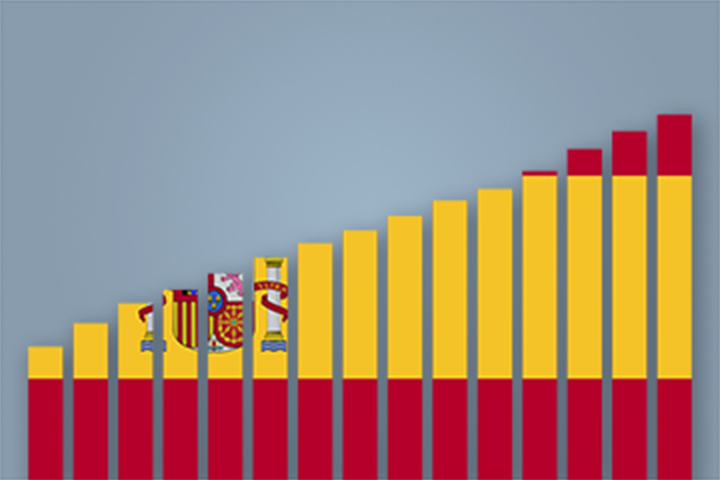Afraid of causing Ferrari or hammock syndrome? This is how you can make a gift and stay in control

Keytrade Bank
keytradebank.be
July 23, 2021
(updated January 24, 2022)
8 minutes to read
If you don't want your children to pay a lot of inheritance tax on your estate later, it may be worth making a gift now. Inheritance tax can be as high as 30% depending on your region and tax bracket. A gift is less costly for your children, especially if they will receive a more substantial estate.
If you make a gift via a notary, the gift tax rate in the Flemish Region and Brussels-Capital Region is 3%. In the Walloon Region, it is 3.3%. The rate of 3 or 3.3% remains the same whether you are gifting 10,000 or 100,000 euros. This is not the case with the inheritance tax rates.
Alternatively, you can make a gift without the involvement of a notary or without registering the gift. This means that your child will pay 0% in gift taxes, but you will need to live for another 3 years after the gift. In the event of your death within 3 years, your child will still pay the (high) inheritance tax.
Gifted = gone
As a rule, gifts cannot be retrieved. What has been gifted will belong to the other person. This stops some parents from making gifts for the following reasons:
1. Ferrari syndrome
What if your child decides to invest all your money in Dogecoin or sneakers? Or rent a private jet to go shopping in New York?
2. Hammock syndrome
What if your child quits their job to live a lazy life using your savings?
3. Witch syndrome
What if your daughter-in-law or son-in-law runs off with your child’s money?
When your children were young they kept you up at night for years, then during their adolescence they caused you all kinds of worry and over their lifetimes they have cost you a small fortune. Of course you now want to make sure that nothing crazy will happen to the assets you want to gift. Luckily, there are gifting solutions that allow you to stay in control.
Gifting and staying in control: a word of advice first
You can subject both a notarial gift and a bank gift to certain conditions and charges. However, for gifts that are subject to conditions or charges it is strongly recommended to contact a notary. The notary can show you the different possible terms to ensure that your gift has exactly the effect you are aiming for without any discussion.
In addition, some terms – such as the retention of usufruct or the gifting of shares in the name of a company – can only be added in the case of a notarial gift. If you opt for a bank gift subject to certain conditions or charges, you really need to have your paperwork checked by an expert.
Also good to know: a gift to a child is considered an advance on the child's inheritance. And even if you give one child an advance on their inheritance, your aim is to keep things equal among your heirs. Once you have died, the equality among the heirs will then be restored.
In other words, when your estate is divided, the gifts you have already made will be taken into account. If you make a gift, you must take the so-called 'forced estate' into account. In Belgium, half of your estate is regarded as forced: this indefeasible portion will always be equally divided amongst your children in the event of your death. If one child has received more than the others, the other children can request the reduction of that gift to ensure that they at least get their equal share of the forced estate.
Some methods for gifting and staying in control
1. Retention of usufruct
Gifts with retention of usufruct can be useful for both movable and immovable property. If you retain usufruct, you will continue to have a legal right to use and derive income from the asset. For example, you can gift a second home, but retain your right to live there or receive rental income from it. In the event of your death, your usufruct will cease to exist and your child will become the full owner.
The retention of usufruct can also be of interest when gifting investments, as it ensures that you continue to receive the dividends and interest. You can also specify that as the usufructuary, you will continue to manage the portfolio and decide which investments are bought or sold. However, the capital gains realised will go to your child.
If you and your partner want to gift a home or a securities portfolio, you can also add the condition that the usufruct will go to the surviving partner first if one of the gifters dies.
You can also add a ban of disposal to the retention of usufruct. This makes it impossible for your child to transfer the home or securities portfolio to a third party.
2. Contractual return clause
Nobody would wish this on anyone, but there is always a small chance that your child might die before you... If your child has no descendants and if the gifted assets are still present in kind in your child’s estate, the gifted items will be returned to you by law. That is the principle of legal return, which is not subject to any inheritance tax if certain conditions have been met.
The law also offers the option of including a contractual return clause in the deed of gift, regardless of whom you are making the gift to (your child or someone else). No inheritance tax is due in the case of such a contractual return.
You can also state in the deed of gift that an amount equal to the gifted value should be returned in the event that your child dies first. Suppose that your child intends to buy a house with the money you are gifting, you can include an option in the deed to return either the house or a replacement amount.
3. Gift subject to a charge
This condition obliges your child to pay regular interest, which can be monthly or annually for example, for as long as you live. For example, you can gift 200,000 euros to your child and in return receive 250 euros in interest from your child every month. This allows you to make a gift and still have some of your assets at your disposal. And if your child does not pay the interest, you can revoke the gift.
4. Exclusion clause
This clause prevents witch syndrome. If your child is married under a separate or community property regime, the assets you gift will be added to your child’s separate assets. If your child is married under a universal community property regime, your gift will be treated as community property (unless you specifically stipulate otherwise).
Although this seems reasonably watertight, in practice the assets may still end up as community property. Suppose you gift a sum of money, which your child uses to renovate the family home that is co-owned by their partner. This then makes your gift part of their joint assets. It is often very difficult to unravel these things again in the event of a divorce …
You can stop this from happening by including an exclusion clause. Such a clause stipulates that the gifted assets must not be added to the marital community property, become jointly owned in the context of the marriage or be included in any settlement under a marriage contract, cohabitation arrangement, rights of survivorship clause or any other clause or contract for as long as you live.
Finally, in addition to the terms described above, there are other terms that allow you to stay in control. Since gifts can generally not be revoked, we strongly advise you to seek the assistance of a notary or expert in this matter.
The above information should be considered as guidance and is not binding. You remain fully liable for the consequences of using this information.


